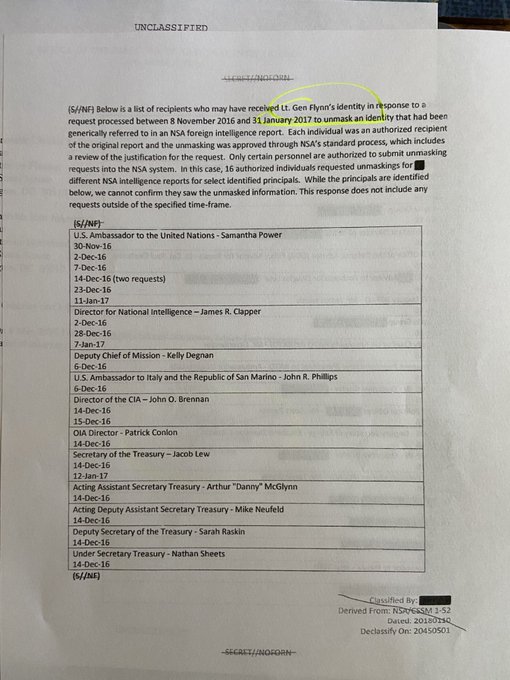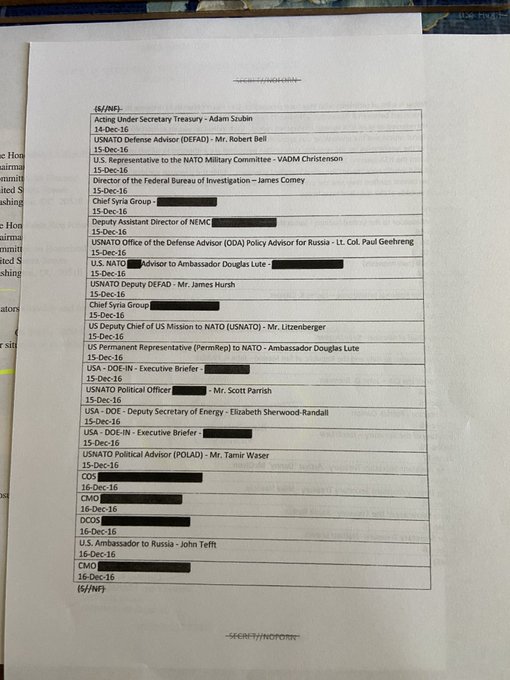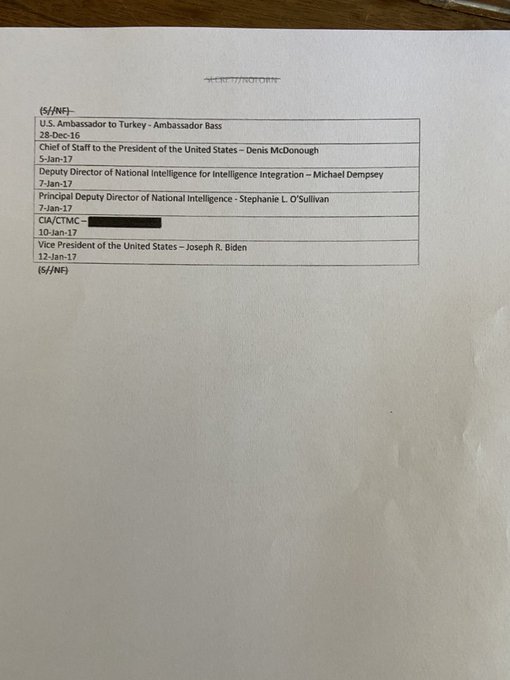MEXICO CITY, May 11 (Reuters) – Mexico’s foreign minister on Monday posted a video online detailing a diplomatic note to the U.S. embassy requesting answers about a gun-running sting under the Obama presidency, keeping a spotlight on the controversial issue.
In the video, Foreign Minister Marcelo Ebrard cited former U.S. Attorney General Eric Holder as saying Mexican authorities knew about the 2009-2011 scheme known as ‘Fast and Furious.’
Representatives for Holder did not immediately reply to a request for comment. Nor did the U.S. embassy in Mexico City.
It was the first time Ebrard or President Andres Manuel Lopez Obrador had made direct reference by name to a key U.S. figure connected to the program since the issue resurfaced in Mexico a week ago.
In a bid to curb cross-border gun smuggling, the U.S. scheme allowed people to illegally buy arms in the United States and take them to Mexico so that the weapons could be tracked and lead law enforcement officials to crime bosses. Some of those guns were subsequently blamed for the fatal shootings of both Mexican and U.S. citizens.
The current Mexican government has zeroed in on the program to highlight possible corruption under previous Mexican administrations amid a debate over how much they knew about the U.S. operation.
Holder, who served as U.S. Attorney General under Barack Obama between 2009 and 2015, had previously issued a statement via the U.S. embassy in Mexico contending that “Mexican authorities” knew about the program, Ebrard said.
“The (Mexican) government requests that it be provided with all the information available regarding the ‘Fast and Furious’ operation,” Ebrard said in the video posted on Twitter.
Lopez Obrador first brought up the gun-running program last Monday when answering questions about Genaro Garcia Luna, a former Mexican security minister who was arrested in the United States in December on drug trafficking offenses.
Garcia Luna served under former President Felipe Calderon from 2006-12, spearheading a crackdown on drug cartels. Lopez Obrador has used his arrest to argue that corruption was rampant in past Mexican governments.
Some critics of Lopez Obrador contend that he has done U.S. President Donald Trump a favor by raising questions about Garcia Luna as the U.S president prepares to fight a November election against Joe Biden, who was vice president from 2009 to 2017 under Obama.
Lopez Obrador’s supporters say he has focused on the issue to illustrate hypocrisy among his domestic adversaries.
Calderon, a longstanding political rival of Lopez Obrador, said last week there was no agreement between Mexico and the United States to permit illicit entry of arms.
‘Fast and Furious’ followed earlier sting operations that began under Obama’s predecessor, George W. Bush. (Reporting by Drazen Jorgic and Sharay Angulo; Editing by Dave Graham and Jane Wardell)
****  photo
photo
Americans paying attention to the unresolved Obama era scandals would like to know all the truth too. So as a refresher, here is the last status of the investigation.
May, 2016:
JS: Last week, Judge Amy Berman Jackson issued an important opinion in Oversight Committee v. Lynch, the subpoena enforcement litigation related to the House Oversight and Government Reform Committee’s investigation into Operation Fast and Furious. Media outlets generally reported it as a win for Congress and loss for the Executive. In an acute sense, that is true — Judge Jackson ordered the Justice Department to produce sensitive materials that reflect deliberations about how to respond to congressional requests and media inquiries. However, the opinion is a much more complicated ruling that reinforces some longstanding executive branch legal arguments that Congress has perennially disputed. In the longer term, this opinion may actually be a win for the executive branch, despite being ordered to hand over documents the President designated as privileged.
Background
The case arose from DOJ’s refusal to turn over to Congress a number of disputed documents pursuant to President Obama’s formal assertion of executive privilege. The underlying congressional investigation sought information related to failed gun trafficking investigations led by the Bureau of Alcohol, Tobacco, Firearms, and Explosives (ATF) that came to be collectively referred to as Operation Fast and Furious. Starting during the fall of 2009, ATF agents in Arizona began setting up a series of sting operations targeting gunrunners who were moving large quantities of firearms across the Mexico border. But, inadequate surveillance, technology failures, and poor judgment led ATF to allow many of the guns it was using in the stings to “walk.” A number of those lost weapons ended up in the hands of drug cartels and showed up at various crime scenes on both sides of the US-Mexico border, including at the scene of the murder of Border Patrol Agent Brian Terry in December 2010. Just last week, within days of Judge Jackson’s opinion, news outlets reported that one of the guns at issue in Operation Fast and Furious was found at El Chapo’s hideout.
However, the document dispute has very little to do with the allegations about ATF’s problematic investigative tactics. With the exception of a few documents related to wiretaps, grand jury materials, and confidential information in open investigative files, Congress received almost all of the underlying documents related to Operation Fast and Furious.
Instead, the most significant dispute in the case relates to Congress’s allegation that DOJ officials lied to Sen. Chuck Grassley (R-Iowa) in February 2011. Congress then aggressively sought all documents related to the Department’s communications and deliberations about how to respond to the congressional investigation and media inquiries, for before and long after the alleged misrepresentation to Grassley. The administration eventually accommodated the Committee by providing access to all the documents that had led to providing Grassley inaccurate information. Those documents demonstrated good faith but a lack of diligence by responsible officials in both Phoenix and Washington, DC. However, Congress forged ahead with a sprawling meta-investigation that raised significant institutional concerns within the Executive about the collapse of “separation” in the separation of powers. (At that time, I was Associate Counsel to the President and was involved in White House negotiations with the Oversight Committee over various congressional requests related to Operation Fast and Furious.) The document stalemate served as the primary basis for a House vote of contempt of Congress against then-Attorney General Eric Holder in June 2012. That same month, the House authorized this civil enforcement lawsuit.
Short-Term Loss for the Executive
At the top line, last week Judge Jackson ordered DOJ to produce all the documents it had designated as protected by the deliberative process privilege. In the absence of an appellate reversal, the Oversight Committee will obtain its prize: some 5,342 unique documents reflecting executive branch deliberations about how to respond to a hostile congressional committee and how to respond to media requests. To be sure, the Committee will seek to make hay of those deliberations and any impolitic remarks they contain.
DOJ had argued the production of documents revealing deliberations about how to respond to Congress would chill fulsome responses to Congress. The court quotes DOJ’s longstanding position that disclosure “would inhibit the candor of such Executive Branch deliberations in the future and significantly impair the Executive Branch’s ability to respond independently and effectively to congressional oversight.” I have previously argued that branch independence is critical in response to oversight requests.
Judge Jackson’s order relies on her holding that Congress’s oversight need outweighs DOJ’s confidentiality interest on the facts in this record. Specifically, she suggests the need for deliberations to be confidential was substantially weakened by prior subject matter disclosures by the public report of DOJ’s Office of Inspector General (OIG). She finds “whatever incremental harm that could flow from providing the Committee with the records that have already been publicly disclosed is outweighed by the unchallenged need for the material.”
Ironically, DOJ has long relied on the OIG report to bolster its argument that Congress could obtain the information elsewhere, which is one of the factors to be considered in the leading DC Circuit opinion on privilege, In re Sealed Case (Espy).
The court’s analysis seems to suggest that an executive branch entity must challenge the legitimacy of Congress’s investigative interests at the categorical subject-matter level rather than at the incremental request level. By characterizing Congress’s interest as an “unchallenged need,” Judge Jackson uses DOJ’s ready concession that Congress had legitimate oversight interests in problematic gun trafficking investigations against it. DOJ didn’t challenge Congress’s investigation as illegitimate, but it certainly argued that Congress has almost no legitimate interest in peering into DOJ’s process of drafting letters to Congress. At the individual request level, DOJ vigorously challenges Congress’s need. The opinion reflects a court that appears to have prudential concerns about assigning relative values to inherently political determinations about the needs and interests of coordinate branches.
However, oversight disputes do not play out at the categorical level. They play out in the give-and-take of phone calls, letter requests, subpoenas, media availabilities, depositions, and transcribed interviews. Further, unlike judicial proceedings, there are no referees, protective orders, evidentiary rules, or motions to quash during that investigative process. By the time an interbranch dispute reaches the courts, all of those fights have happened and positions have hardened. A categorical approach is a meat axe where a scalpel is needed.
That is why I took some issue with the court’s prior ruling that that the matter is justiciable. To me, justiciability requires judicious review of the reasonableness of requests, the chilling effect of a particular disclosure, and the incremental nature of harms. So, as I wrote in October 2013:
If a court is going to resolve an important dispute between Congress and the President, wouldn’t congressional need, withholding grounds, and accommodation alternatives be the essential inquiry? … The notion that the underlying facts about controversial ATF investigative tactics have come to light and remedied should bear on analysis of Congress’s need to intrude on Executive Branch deliberations.
Likely of little solace to the executive branch, Judge Jackson cabined her rationale to “the specific and unique circumstances of this case.” In addition, the court specifically noted that its “ruling is not predicated on a finding that the withholding was intended to cloak wrongdoing on the part of government officials or that the withholding itself was improper.”
Longer-Term Win for the Executive
Of more comfort to DOJ, Judge Jackson has now ruled in favor of the Executive Branch, and against Congress, on the two most contested issues that are likely to have enduring precedential effect.
First, as I have discussed previously, the court’s August 2014 ruling held the Executive Branch may assert a deliberative process privilege in response to a congressional subpoena. Congress had argued that the deliberative process privilege was grounded in common law alone and therefore inapplicable to a separation-of-powers dispute. In Judge Jackson’s prior opinion, “the Court reject[ed] the Committee’s suggestion that the only privilege the executive can invoke in response to a subpoena is the Presidential communications privilege.”
Second, in last week’s opinion, Judge Jackson specifically held that the deliberative process privilege also applies to deliberations about how to respond to media inquiries or congressional requests. Congress had argued that the privilege is confined exclusively to policy deliberations. Rejecting that argument, the opinion notes “the Court holds that documents withheld by defendant that reveal the Department’s internal deliberations about how to respond to press and Congressional inquiries into Operation Fast and Furious are protected by the deliberative process privilege.”
As a practical matter that protection dissolved in the face of the court’s prior disclosure and incremental harm analysis. But the holding is a significant doctrinal win for the Executive branch. Many DOJ attorneys will have an impulse to appeal this ruling in order to shield the ordered disclosures, but perhaps the executive branch’s two substantial legal victories will caution against it.







